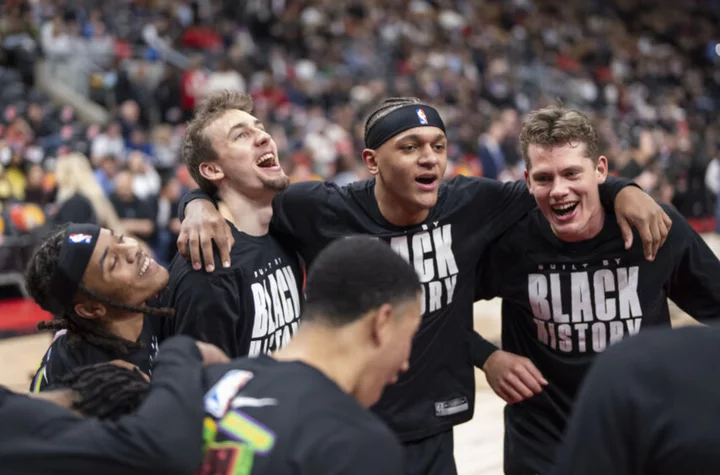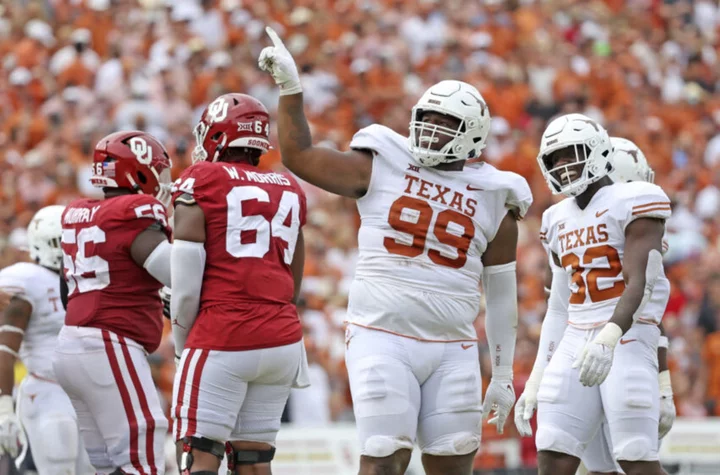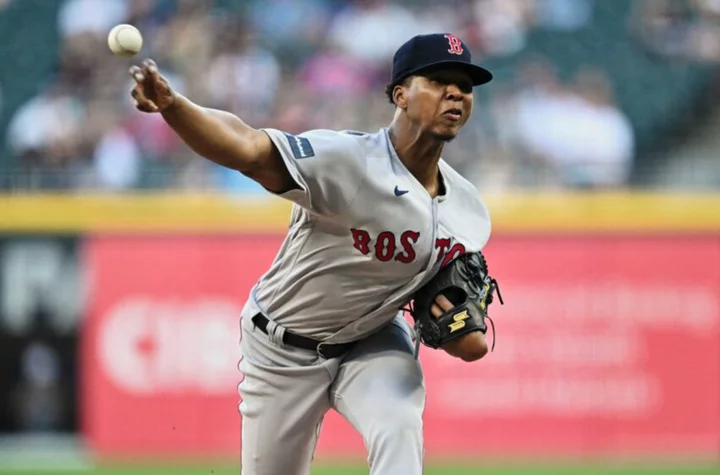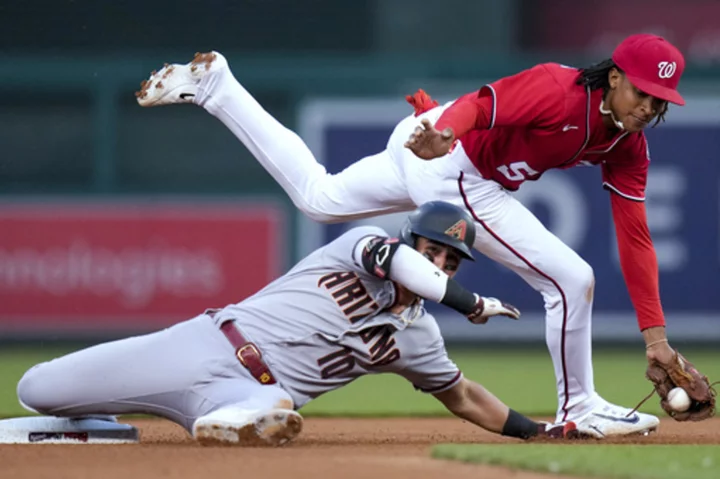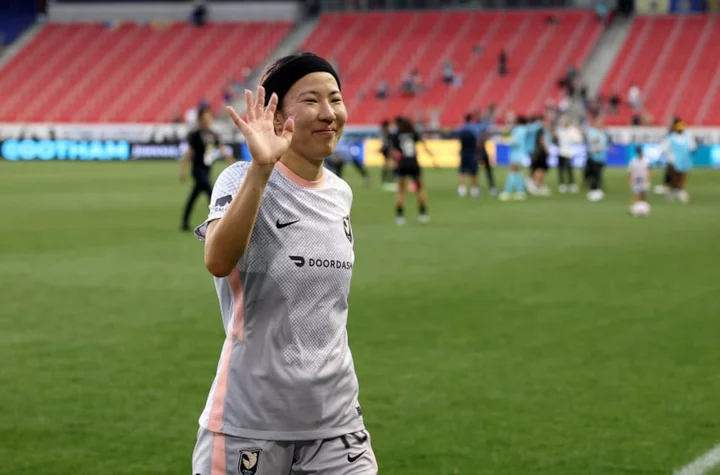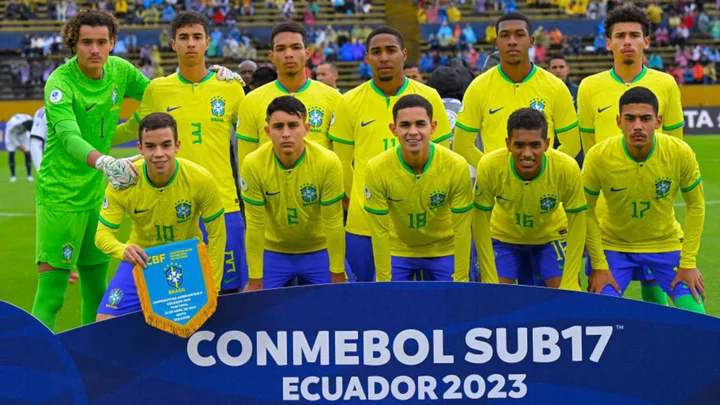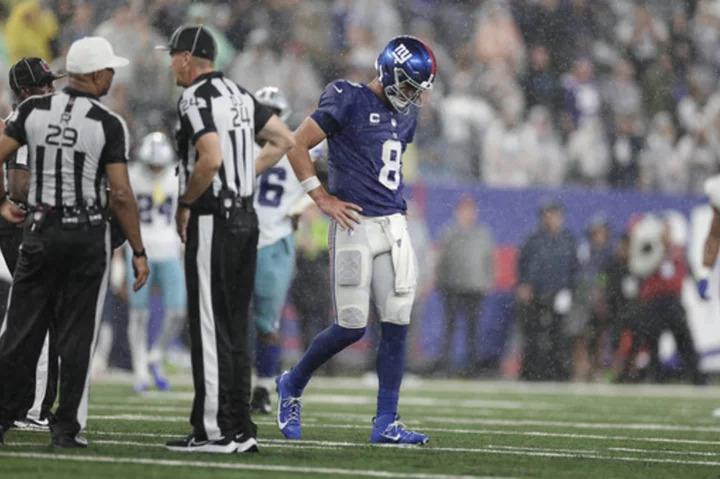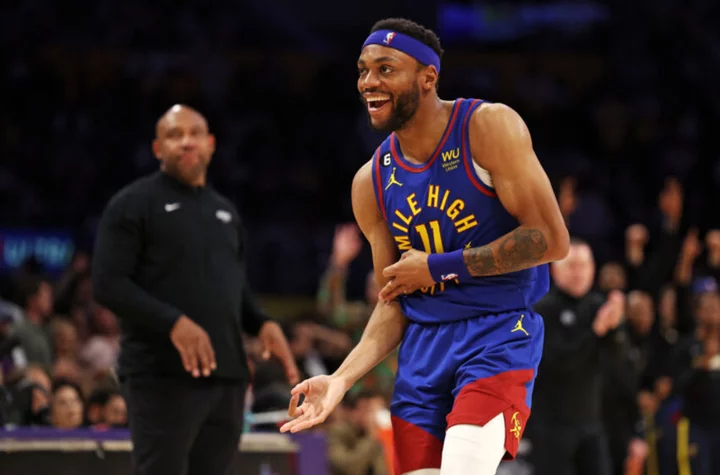The Orlando Magic boast a deep and talented core. The team is close to taking the next step, but Jamahl Mosley will have his hands full trying to guide such a young team to the playoffs.
The Orlando Magic finished last season 34-48, which placed them 13th in the Eastern Conference. Not exactly on the verge of contention. Even so, the Magic continue to trend in the right direction. Few truly terrible teams flashed as much promise and potential as the Magic, who — for brief stretches of time — looked like a burgeoning defensive juggernaut with two bonafide offensive cornerstones.
Now, expectations will trend upward. The Magic have to transition from rebuilding to building eventually. Paolo Banchero and Franz Wagner are stars. The rest of the roster is ripe with quality young players, most of whom play both ends of the floor, and several of whom carry significant star upside in their own right. Another package of lottery picks arrived in June. The fandom's patience for 30-win seasons will run thin shortly.
Orlando isn't ready to contend yet, but it's not like the Magic are wandering aimlessly through oblivion either. The NBA has never faced such an abundance of star power, and with it competitive parody, but few teams can match Orlando's unique intersection of size and skill. The Magic are huge. Wingspan only gets you so far, but the Magic will be well above-average on the defensive end sooner than later.
The question is, how quickly can the team catch up offensively? It will depend significantly on Banchero's second-year leap, not to mention further progress from Wagner. Orlando has a gaggle of high-upside guards, none of whom are entirely proven at the NBA level. If one or two of them really pop next season, then the Magic are cooking with grease.
As the 2023-24 campaign dawns, here is what Jamahl Mosley is working with rotationally.
Orlando Magic starting point guard: Markelle Fultz
You will struggle to find a player with a more unique career arc than Markelle Fultz. After years of battling a mysterious shoulder malady known as thoracic outlet syndrome, the former No. 1 pick is finally showing signs of NBA stardom. He may never achieve the heights we all expected coming out of the 2017 NBA Draft, but Fultz was extremely productive for Orlando last season.
The 25-year-old averaged 14.0 points and 5.7 assists on .514/.310/.783 splits in 29.6 minutes per game. He appeared in 60 games and started all of them, firmly supplanting Cole Anthony as the team's lead ball-handler. Still young, there's time for Fultz to build on last season's success. The wellspring of talent beneath the surface never faded, only his confidence. Now he's getting back in the groove.
Fultz's jumper is probably never reaching its pre-injury form. Once a prolific pull-up shooter with deep range, Fultz averaged only 1.5 three-point attempts per game last season. That's far and away the best number of his career and his progress should be celebrated, but he's not a 3-point threat. Instead, Fultz has learned to weaponize his slithery handles and feather-soft touch to pick apart defenses with his in-between game. Fultz has the mid-range jumper down pat, and he's a brilliant rim finisher due to his impressive length and body control.
Even when defenders sag off, Fultz is comfortable charging downhill and collapsing the defense to create for teammates. His eye for playmaking was never in doubt and he's going to continue setting the table effectively and efficiently (only 2.3 turnovers to 5.7 assists).
Fultz can also smother guards at the point of attack and wreak havoc in passing lanes with his 6-foot-9 wingspan. He's a genuine two-way player and, for now, the clear best guard on the Magic roster. Given all that he has been through, that is a triumphant statement — and Orlando should continue to have faith in Fultz's development.
Primary backup point guard: Anthony Black
The Magic will eventually have to make a decision about all the young guards on the roster. There are too many; it's impossible properly invest in the development of each one. Anthony Black, the No. 6 pick in June's NBA Draft, takes the mantle of backup point guard. Black is more connector than lead guard, but he's a consistent source of rim pressure and his focus is on creating for teammates. Plus, he's not a great fit with Fultz, so he will probably see the bulk of his minutes when Fultz hits the bench.
Black's lack of a reliable 3-point shot was the big concern coming out of Arkansas. It made him a bit of an odd pick for the Magic, who have plenty of shot-creators and defenders, but who desperately lack shooters. Even so, Black is a top-shelf perimeter defender at 6-foot-6 and he's one of the smartest teenagers in the game. He processes the game quickly and makes a point to keep the ball popping, which will promote a more fluid offense.
The Magic love tall, versatile athletes. Black made all the sense in the world from that perspective. He's the ultimate Magic prospect and Orlando will hope the 3-point shot comes along enough for him to regularly share the floor with Fultz. If not, that particular source of roster conflict could define the next couple of seasons.
Other players who could receive minutes at point guard: Cole Anthony, Jalen Suggs
Orlando Magic starting shooting guard: Gary Harris
Veteran Gary Harris started 42 of 48 appearances for Orlando last season. Harris became known for his perimeter defense with Denver, but his 3-point shot has come on strong in two full years with Orlando. Last season saw him hit 43.1 percent of 4.5 attempts per game, a remarkable feat that places him in the realm of the league's top marksmen.
While mild regression could lie ahead for Harris, he's the best spot-up shooter on the Magic roster. That counts for a lot given the nature of the players around him. Orlando needs more players in the Harris vein. He doesn't necessarily fit the timeline of the rebuild, but there's more to that conversation than age. Harris' presence makes life easier on Banchero, Wagner, and others. He opens up driving lanes, defends his position, and supplies a sage voice in the locker room. Harris is key to what Orlando is building. He's also 28, so it's not like he's on the wrong side of his prime. He has several years of productive basketball left in the tank.
Harris will have to watch his heels with younger guards like Anthony Black and Cole Anthony in the mix, but he should start the season back in the starting five. He doesn't provide a ton of self-creation, but Orlando has playmakers at every other position. Harris simply needs to keep the 3-point volume high, attack errant closeouts, and make simple passes.
The Magic get plenty of mileage from Harris on defense, where his 6-foot-4 frame belies underrated strength and versatility. He can comfortably switch one through three and, by sheer virtue of experience, he's one of the most reliable perimeter stoppers on the team.
Primary backup shooting guard: Cole Anthony
The guard depth in Orlando has done Cole Anthony no favors, but he's underrated at this point. At 6-foot-2 on a good day, Cole Anthony is the lone "small" guard on the Magic roster. He doesn't offer much resistance on defense as a result, but the effort is always there. And, on offense, there's more than enough reason to continue investing in his development.
Anthony is the perfect offensive complement to a guard like Fultz. He can score on or off the ball, equally comfortable lunching pull-up 3s or curling around a screen into a catch-and-shoot jumper. Anthony is Orlando's most traditional pick-and-roll playmaker, great at manipulating the defense with shifts in speed and direction before pulling up or locating a teammate. Anthony can let his confidence get the best of him occasionally, but his 3-point volume and self-creation is essential to the Magic's halfcourt offense.
Last season, he averaged 13.0 points, 4.8 rebounds, and 3.9 assists on 57.0 TS% in 25.9 minutes. His playing time will continue to suffer with the arrival of Black and fellow lottery pick Jett Howard, but Orlando can't let Anthony wander too far from the limelight. He's very good and a definite rotation piece.
Other players who could receive minutes at shooting guard: Jalen Suggs, Joe Ingles, Jett Howard
It's easy to forget that Jalen Suggs was the No. 5 pick a couple years ago. His first couple NBA seasons can be charitably described as rocky, but like with every young Magic guard, there's reason to buy him long term. Suggs is an absolute monster athlete, with incredible strength for his position and impressive burst driving the lane.
Suggs was often likened to a quarterback at Gonzaga, in part due to his grab-and-go tendencies and talent for outlet passes. Part of what makes Suggs special, however, is his ability to read the floor and communicate. He empowers teammates on both ends and has the competitive leadership qualities you would associate with someone like Jalen Hurts.
The 3-point shot has been a major Achilles heel for Suggs, but he makes some show-stopping plays on defense and the passing remains impressive. If he can get the jumper to a workable place, it will be hard to keep him out of a major rotation role, maybe even the starting lineup.
Orlando Magic starting small forward: Franz Wagner
There aren't many 6-foot-10 dudes who can do what Franz Wagner does. Lost in the shadow of Paolo Banchero's brilliant rookie season was the fact that Wagner was often the best player on the floor for Orlando. He's a legitimate franchise pillar and he's probably going to be hovering around the All-Star debate sooner than the average non-initiate realizes.
Wagner's second-season was leap was pronounced. He averaged 18.6 points, 4.1 rebounds, and 3.5 assists on 58.9 TS% in 32.6 minutes. Wagner already scores proficiently at all three levels. Close out too quickly on the perimeter and he will dominate as a driver, extending for finishes at the rim or peppering the defense with pull-up middies. He can operate as a screener or handle the ball in pick-and-rolls. He can operate as a quasi-point guard. Ask him to play big, he can. There aren't many players who check as many boxes as Wagner.
On the defensive end, Wagner is pivotal to Orlando's scheme. He's the best wing defender on the roster, capable of mirroring guards or forwards alike. He gets wide at the point of attack, blessed with a 7-foot wingspan, and completely shuts off driving lanes. Off the ball, he's hyper-aware, never out of rotation or sleeping in the corner. His relentless activity and nose for blowing up plays is not common for 21-year-olds.
He doesn't get the credit he deserves, even within his own draft cohort (Wagner should get flowers before the likes of Jalen Green, Josh Giddey, even Cade Cunningham), but that will change as the Magic start winning more games. Wagner is a two-way star on the rise and he's the backbone of Orlando's defense. We are talking a borderline top-50 player.
Primary backup small forward: Joe Ingles
The Magic shelled out $22 million over two years to lure Joe Ingles to Orlando. The veteran spent last season with Milwaukee, where he averaged 6.9 points and 3.3 assists in 22.7 minutes. Ingles is first and foremost a vet to stabilize a young group, but he's also a very Magic player.
Listed at 6-foot-8 and 220 pounds, Ingles once operated as the primary backup point guard in his Utah Jazz heyday. He's a brilliant passer, capable of making split-second reads and passing teammates open. His 3-point shot is automatic (40.9 percent on 4.4 attempts last season) and while the defense has tanked in recent years, Orlando has more than enough support to mitigate Ingles' weaknesses.
The Magic need more volume shooters. Check. The Magic also love having multiple sources of playmaking on the floor, preferably from positionally versatile sources. Another check. Ingles is going to do a lot of good things for Orlando.
Other players who could receive minutes at small forward: Jonathan Isaac, Jett Howard, Chuma Okeke
Jett Howard was the No. 11 pick in June's NBA Draft. He's a pure shooter who's played a varied offensive role at Michigan. It's not hard to see why the Magic wanted him. The defense is a concern with Howard, but he's a try-hard and, at 6-foot-8, size won't be a problem. He's ready to play, it's a matter of whether or not Howard gets buried by the depth chart in his first season.
Orlando Magic starting power forward: Paolo Banchero
To reuse a phrase from the Wagner blurb: There aren't many 6-foot-10 dudes who can do what Paolo Banchero does. The Magic landed on Paolo Banchero as the No. 1 pick in the 2022 NBA Draft at the 11th hour, spurning Chet Holmgren and Jabari Smith Jr., both of whom had wide pools of support around the league.
In hindsight, it's damn near impossible to argue with Orlando's decision. We don't really have a baseline for Holmgren in the NBA yet, but Smith was vastly disappointing in year one with Houston. Meanwhile, Banchero was borderline historic in his rookie season, averaging 20.0 points, 6.9 rebounds, and 3.7 assists on 52.9 TS% in 33.8 minutes.
Efficiency was the only real knock on Banchero, who spent his first NBA season as the focal point of every scouting report. He took a lot of tough jumpers and ultimately, his percentages suffered. That will improve with time, as is the case for most teenagers making the leap from college stardom to NBA stardom. The 3-point shot was hit or miss for Banchero, but he's verging on legitimate three-level scoring with the ability to operate as a playmaking hub in the frontcourt.
Banchero is unbelievably strong. He is 20 years old bumping NBA athletes off their spot like it's no problem, completely unafraid of throwing his weight around to generate space in the paint. Banchero can slip past slower defenders on the perimeter with a bursty first step, or take smaller defenders to town on post-ups. As he continues to expand his playmaking arsenal and work on the 3-point shot, expect an All-Star berth in Banchero's future. He's sharpening his skills with Team USA over the summer, which can't hurt.
Primary backup power forward: Jonathan Isaac
Jonathan Isaac missed consecutive seasons to ACL injuries before his return in 2022-23. It wasn't the smoothest transition back, but Isaac appeared in 11 games and averaged 5.0 points, 4.0 rebounds, and 1.3 steals in 11.3 minutes. It was enough to set the stage for a full-on return this season.
Isaac was a burgeoning DPOY candidate before the injuries. He's 6-foot-11 with a 7-foot wingspan and the quickness to guard on the perimeter. It's fair to wonder how much versatility he has maintained over the course of two injuries, but there were plenty of flashes in his brief time on the floor last season. If Isaac can get back to 80 percent of his pre-injury self, he's going to impact winning in a big way with his weak-side rim protection and switchable presence.
He's a career 33.3 percent 3-point shooter and it's not terribly clear where Isaac's offensive game stands at this point, but he averaged 11.9 points in 28.8 minutes last time he was healthy. If Isaac can hit enough 3s to stay on the floor, he's going to have a considerable role off the bench.
Other players who could receive minutes at power forward: Chuma Okeke, Wendell Carter Jr., Franz Wagner
Orlando Magic starting center: Wendell Carter Jr.
The Magic received Wendell Carter Jr. and multiple picks in exchange for Nikola Vucevic, a trade that has only grown more lopsided with each passing season. Vooch continues to produce admirably for a middling Chicago team, but Carter has quietly developed into one of the league's premier modern fives. He's a central figure in the Magic's rebuild.
Carter is the perfect center for Orlando's roster. He's a versatile offensive weapon, capable of spacing the floor (35.6 percent on 3.9 three-point attempts), setting solid screens, and finishing with touch at the rim. Carter doesn't exactly profile as a self-creator, but he displays nimble footwork in the post and he's an advanced passer for his position. His quick processing and selfless approach make him invaluable connective tissue for the Orlando offense.
On defense, Carter is laterally mobile with the ability to cover a lot of ground in the paint. He doesn't block a ton of shots, but he gets in the way and uses his strong 6-foot-10, 270-pound frame to stonewall drivers at the rim. He doesn't get moved off his spot and he's one of the few bigs who can genuinely hang with the Joel Embiids and Giannis Antetokounmpos of the world, which is important for a Magic team that eventually wants to compete in the East.
Carter filled the stat sheet last season with averages of 15.2 points, 8.4 rebounds, and 2.3 assists on 62.1 TS% in 29.6 minutes. He will continue to anchor Orlando's long, switchable defense while filling gaps on the offensive end. Banchero is the primary media draw for the Magic, but Carter is a legitimately essential piece.
Primary backup center: Moritz Wagner
The elder brother of Franz Wagner, Mo Wagner hails from Michigan (by way of Germany) and has carved out a role with Orlando over the years. The No. 25 pick in the 2018 NBA Draft, Wagner bounced around the league his first couple of seasons before finding a home with the Magic.
At 6-foot-11 and 245 pounds, Wagner is impressively versatile on the offensive end. He splashed home 31.3 percent of his 2.9 long-range attempts per game last season and averaged 10.5 points in 19.5 minutes. When chased off the 3-point line, Wagner is a surprisingly agile driver who can cook slower bigs. He can balance power and finesse at the rim and he competes hard on defense, even if it doesn't qualify as a particular strength of his.
Other players who could receive minutes at center: Paolo Banchero, Jonathan Isaac

